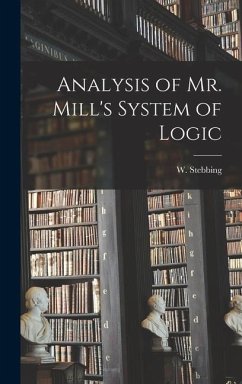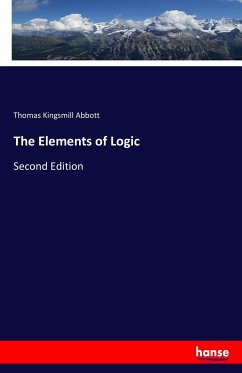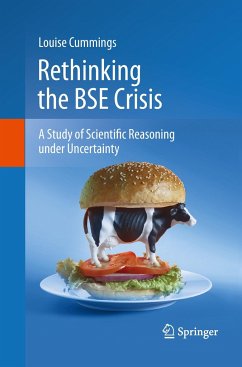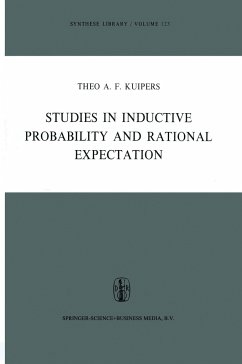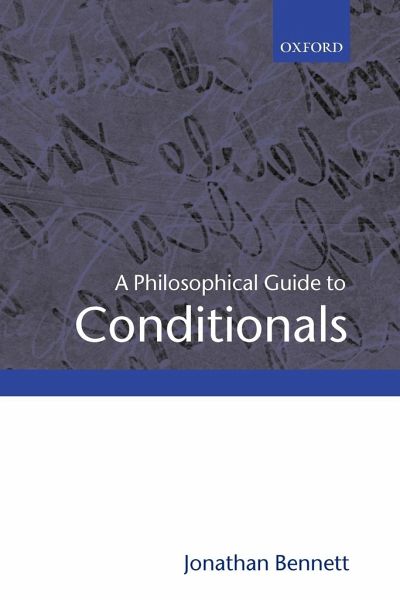
A Philosophical Guide to Conditionals
Versandkostenfrei!
Versandfertig in 1-2 Wochen
65,99 €
inkl. MwSt.

PAYBACK Punkte
33 °P sammeln!
Conditional sentences are among the most intriguing and puzzling features of language, and analysis of their meaning and function has important implications for, and uses in, many areas of philosophy. Jonathan Bennett, one of the world's leading experts, distils many years' work and teaching into this Philosophical Guide to Conditionals, the fullest and most authoritative treatment of the subject. An ideal introduction for undergraduates with a philosophical grounding, it also offers a rich source of illumination and stimulation for graduate students and professional philosophers.






